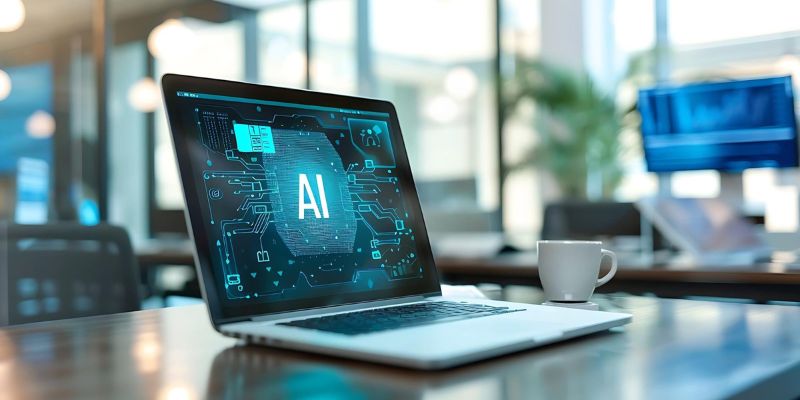Artificial Intelligence (AI) is now part of our everyday lives, from mobile apps suggesting what to watch next to smart assistants helping us manage our schedules. It is used in hospitals, banking, transportation, and even education. While it offers great benefits like speed, accuracy, and convenience, many people still wonder how safe it really is to depend on AI. Is it trustworthy in important situations? Can it make mistakes? Can it be used in harmful ways? This blog explores these questions to help you understand the risks and responsibilities that come with using AI.
AI Accuracy Depends on the Data It Learns From
AI works by learning from large amounts of data. If the data is accurate and well-organized, AI systems can make smart and reliable decisions. However, if the data is incomplete, biased, or outdated, AI can make wrong judgments. For example, an AI used in hiring might treat some candidates unfairly if the data it was trained on reflects past biases. This shows that the safety of AI depends heavily on the quality and fairness of the data it is fed. People enrolled in an Artificial Intelligence Course in Coimbatore can learn how to eliminate bias and train ethical AI models.
Machines Can Lack Human Understanding and Emotion
One of the biggest concerns about relying on AI is that it doesn’t truly understand human emotions or intentions. AI follows rules and patterns but cannot feel empathy or kindness. This becomes risky in areas like mental health care or education, where emotional understanding is important. While AI can help by offering suggestions or reminders, fully depending on it for emotional support or deep decisions may not be safe. There’s a difference between understanding a problem logically and feeling what someone is going through emotionally.
Privacy and Security Are Serious Concerns
When we use AI systems, especially those connected to the internet, we often share personal information like our name, address, voice recordings, or even health details. If this information is not stored or handled safely, it can fall into the wrong hands. Hackers might use weak security in AI systems to steal sensitive data. Learners in an Artificial Intelligence Course in Madurai also gain skills in securing AI systems and protecting user data.
AI Is Only as Good as Its Human Creators
AI doesn’t make decisions by itself-it works based on what it has been told or taught. That means any mistake made by the people developing the AI can become part of how it functions. If safety checks are skipped or corners are cut, AI tools can behave in unsafe or unpredictable ways. Self-driving cars, for example, must be programmed with extreme care, as one wrong move could lead to an accident. So while the machines carry out the tasks, humans are still responsible for their safety. Businesses automate workflows in Salesforce using AI.
AI Can Be Misused for Harmful Purposes
AI has the potential to do good, but in the wrong hands, it can also be used for harm. Some people use AI to create fake news, deepfake videos, or scam messages that look real. These tools can trick people into believing false information or even cause panic. Those enrolled in an Artificial Intelligence Course in Pondicherry explore both ethical use cases and how to detect and prevent misuse of AI tools.
Dependency on AI Might Make Us Less Skillful
As we become more comfortable letting AI do things for us-like navigation, writing, or calculating-we might start losing our ability to do those things ourselves. For example, if you always rely on AI to suggest words or ideas, your creativity or memory might not be used as much. Over time, this could lead to a lack of critical thinking or problem-solving skills. While AI is helpful, it’s important not to forget how to do basic tasks on our own, especially in situations where technology might not be available.
Legal and Ethical Rules Are Still Catching Up
One of the reasons AI safety is a concern is because the laws and rules about how to use AI are still developing. In many places, there are no clear guidelines on who is responsible if an AI system causes harm. Should it be the developer, the user, or the company selling the product? Without proper rules, there’s a lot of confusion about accountability. Until laws and ethical standards are put in place, users must be cautious about how much they depend on AI.
Balancing Benefits with Caution
AI can be extremely helpful in many situations, such as reducing workload, offering quick suggestions, or spotting patterns that humans might miss. However, that doesn’t mean we should trust it blindly. A good approach is to use AI as a tool, not as a replacement for human judgment. Those considering an Artificial Intelligence Course in Tirupur will discover how to combine AI tools with strong human decision-making.
Relying on Artificial Intelligence comes with both promise and risk. It can make life easier and help solve difficult problems, but it is not perfect. Mistakes can happen, and there are real dangers if it is misused or trusted too much. AI is a tool that should be used wisely, with human oversight and ethical responsibility. To make AI truly safe, we need better data practices, stronger security, clear legal rules, and most importantly, thoughtful and responsible use. The future of AI depends not just on what machines can do-but on the choices we make in how we use them.
Also Check:
What Are the Latest Breakthroughs in Artificial Intelligence?

